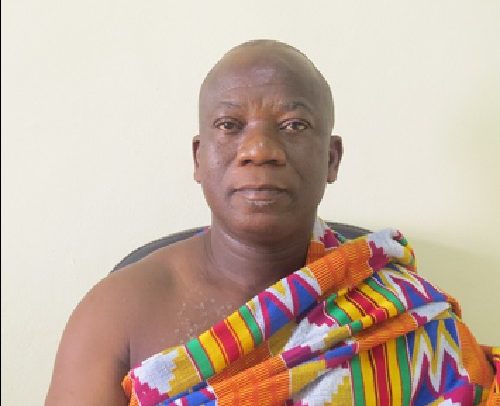
Officials at the United States Agency for International Development (USAID) are expressing concern water insecurity across the world is on the rise.
They are worried potable water is becoming less and less available to people in several parts of the world, particularly in developing nations.
“Water insecurity is on the rise. That means the shocks and stresses are increasing in severity and frequency; so floods and droughts and water pollution,” Jeff Goldberg who is Director, Office of Water at USAID headquarters in Washington DC – USA, noted.
“We know 1.2 billion people are living in areas of physical water stress and as we project out into the future, water demand across agriculture, industry and domestic use are going to be increasing whilst supply is going to be dwindling,” Mr Goldberg added.
He was interacting with journalists across from across the world who visited the agency for a discussion on “creating a water-secure future” on the invitation of the Foreign Press Centers.
Quoting a 2016 World Bank reported, he said, “the consequences of these are stark. From a global perspective, many countries could see their economic growth decline by an average of 6% or up to as much as 15% of GDP by 2050 as a result of water.”

He expressed concern conflict situations in several parts of the world could worsen because of challenges with getting access to water noting, “many of the countries were are partnering with are at risk of increased fragility and conflict and we know that water stress can exacerbate that.”
The USAID water chief said not enough progress has been made in solving water challenges in the world despite meeting the Millennium Development Goals as “access have really lacked in poorest countries where needs are the greatest.”
“So the global community in 2000 set an ambitious goal of halving the population by 2015 that didn’t have access to water and sanitation. The global community met the water goal. But if you remove India and China from the global statistics, you see that we didn’t actually meet the goal for water,” he observed.
“So where population growth was highest, gains there caused the global statistics to look quite good. But we know that in the poorest of the poor countries, particularly in Sub Saharan Africa and South-East Asia, there are critical access gaps that remain,” Mr Goldberg said.
He is particularly worried despite these concerns, “water is undervalued both economically as a resource and as a service. And is not always politically prioritized.”
But he says water availability is fundamental to good health, environmental sustainability, economic growth, empowerment of women and girls, and the facilitation of development across the world.

The USAID official’s concern about increasing water insecurity is shared by chairman and founder of the Global Environment and Technology Foundation (GETF) Tom Harvey who is convinced climate change will worsen the situation in the years ahead.
“Water stress situation will get worse because the climate is changing. It is not getting any better. Things will get very bad. It’s getting to the point that we will be unable to turn the hands of things,” Mr Harvey told Joy News.
Jeff Goldberg says the US government is dedicated to helping deal with the problem. This is why congress approved legislation known as the Water for the World Act 2014 to authorise the executive to help provide water resources to needy nations.
“The US government is committed to this…. Especially in the light of the challenges I just spelt out,” he said. “We are looking at how we can address underlying water security issues and facilitate access to drinking water to improve human health, economic growth and improve future resilience to shocks and stresses,” Mr Goldberg said.
He says a Global Water Strategy has been launched by the US government through which they are working with various countries to increase the availability of safe water with emphasis on the underserved and most vulnerable areas in the world.

Mr Goldberg, however, expressed concern the gap in financing water provision and sanitation annually across the world has hit $114 billion annually according to a World Bank report. He says this far outweighs the US government’s expenditure on the water which stands about $435 million annually.
Tom Harvey is pushing for increased public and private sector partnership to achieve the ultimate goal.
“This is not only the role and responsibility of governments. But also the responsibility of companies that benefit from these countries. They need to contribute to this,” Mr Harvey added.
“Private sector can’t do everything by itself. Public sector can’t. But if you come together, you can do anything. And that is really if you are committed to getting something done…” he noted.
The USAID official also expressed worry improved sanitation is being given even less priority across the world than water.
“Sixty-one countries in the world have at least 5% of the population practising open defecation…That’s 3.2 billion people globally practising open defecation,” he said. “The health and economic impact of lack of access to sanitation is vast.
“Under 5 child mortality can be traced to that. And a World Bank report noted that $160 billion per year is lost in GDP due to lack of access to sanitation as well…,” Mr Goldberg noted.
Read Full Story



















Facebook
Twitter
Pinterest
Instagram
Google+
YouTube
LinkedIn
RSS